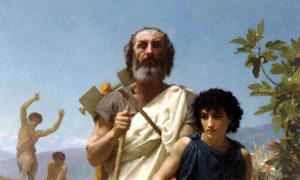
An unforgettable moment: sitting with my uncle Sidney when I was a teenager, the Sidney that was my family’s Aristotle, asking him for an answer as to why I was struggling with a girlfriend. And his answer, which exploded my fantasies about adults, was a simple, quiet, and humble “I don’t know.”
If you are like me you grew up around adults that postured themselves to always be the ones who knew, and never admitted when they didn’t. The result was a painfully shame-laden gap between my inner world of ambiguity, paradox, and fear, and their world of seeming certainty, clarity, and mastery.
As I began to take my place in the workforce I encountered bosses who took the same stance. And under the influence of these mentoring models I too became one who knows, one forbidden to host and admit uncertainty to others.
It was lonely.
Then, after launching a start-up music company, I watched in admiration as my business partner, Sean Holt, employed “I don’t know” as an honest and effective intervention with our composers and sound designers: it was an invitation for them to participate in the process of looking for their own unique creative solutions.
Now, as a psychotherapist, where healing happens through the openness and transparency of a genuine and empathic human relationship, “I don’t know” moments occur all the time. Over the past 9 years I’ve observed that when I can meet a patient in his or her uncertainty by being genuine and admitting that I, too, do not know, meaningful things happen. We become equals, fellow travelers, two creatures facing the vast unknown together. A patient’s inner sense of safety emerges. They feel heard, understood, valued, and necessary. Anxiety lessens. Self-worth increases. We then share a relationship rich in curiosity, acceptance, and authenticity. I need this as much as they do, person-to-person, and think back with gratitude to Sidney’s gift, the power of “I don’t know.”
Inspired from a talk given by Dr. Steven J. Frank at the C.G Jung Institute of Los Angeles, 2016